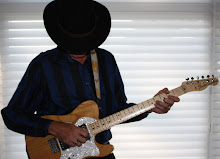So, I saw Paul McCartney's performance in Toronto last year. First time (I was too young to disobey the 'you can't go; you'll get trampled to death' edict when The Beatles came through in the 60's, and in the 70's I was still mad at him over the breakup, but these are other stories).
Well, everyone blamed somebody for that, didn't they? I mean the Beatles breakup.
Excuses for the last few tours? None, really. None at all.
Notice how I'm delaying saying anything at all about this concert? That's because I'm speechless. Still.
Long, long pause ...
I can't imagine a better concert experience. Almost three hours of non-stop exhilaration. One magical song after another, with barely a breath in between. I don't think Paul even took a sip of water. Energy, exuberance, and joy washing over an electrified audience in wave after astonishing wave.
And such showmanship. Each joke, each wink, seemed to be delivered to everyone in the audience personally. Personally. He's like a Windows 7 commercial: "I'm a music lover, and Paul McCartney was my idea."
No if's, and's or maybe's. I'm definitely amazed.
Well, everyone blamed somebody for that, didn't they? I mean the Beatles breakup.
Excuses for the last few tours? None, really. None at all.
Notice how I'm delaying saying anything at all about this concert? That's because I'm speechless. Still.
Long, long pause ...
I can't imagine a better concert experience. Almost three hours of non-stop exhilaration. One magical song after another, with barely a breath in between. I don't think Paul even took a sip of water. Energy, exuberance, and joy washing over an electrified audience in wave after astonishing wave.
And such showmanship. Each joke, each wink, seemed to be delivered to everyone in the audience personally. Personally. He's like a Windows 7 commercial: "I'm a music lover, and Paul McCartney was my idea."
No if's, and's or maybe's. I'm definitely amazed.
